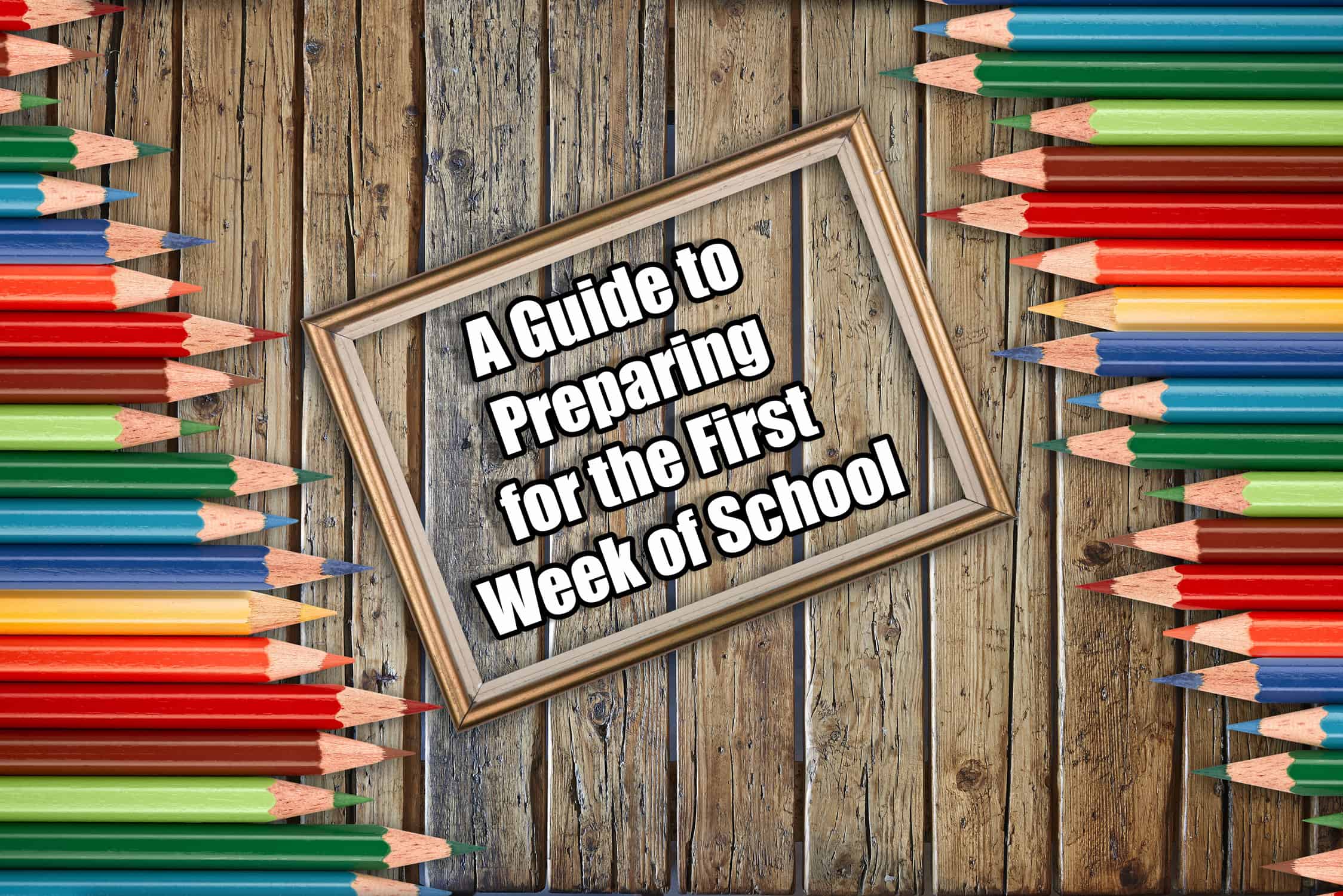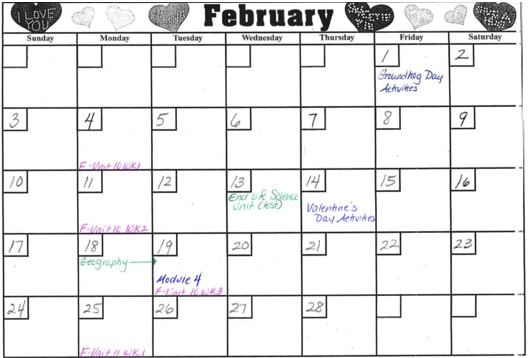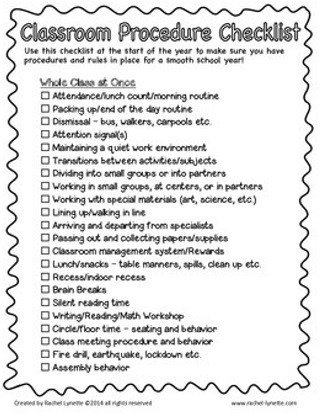
Picture this, the last celebrations of summer are coming to an end. The tan lines are starting to fade. There is the faintest bit of sand left in your bag, and all the books on your summer reading list have been read. Now, it is time to start heading back to school.
There is so much to think about and do before those kiddos march through your door on that first day. Organizing your thoughts and goals for the week ahead can be a daunting task. Not to mention the in-service hours you will be required to attend.
Daybreak decided to take some of the pressure off and put together a first week prep guide for you to follow. This prep guide is a sure-fire way to have your classroom, plan book, and mind ready for when those students walk in on the first day of school.
A Guide to the first week of school
Set goals and yearly focus
Before walking into that first week of in-service, take the weekend to reflect on your goals for this year. What do you hope to gain from this week of in-service, and what will you truly focus your efforts towards? Setting yearly goals in the classroom allow the teacher to stay fresh, focused, and driven. Here’s our advice, choose three to four goals for yourself and your classroom. They could be based in research or something as simple as being more organized this year. Place these goals somewhere you can see them daily and check in with yourself daily or weekly. Or enroll a mentor to help hold you responsible for sticking with them.
Some goal examples include…
- Organize weekly lesson plans one week in advance, and we can help you with that
- Build open communication with parents
- Establish a community inside the classroom
- Create thoughtful lesson plans to boost dry unit material, this is what we specialize in
- Feel confident with guided reading groups
- Develop math centers
- Differentiate in new creative ways
- Utilize Daybreak lesson sub plans
Brush up on the curriculum
If your week of in-service does not include time to review curriculum, take it upon yourself to do so. It may seem like a mundane task, but the world of education is always changing. It is best practice to look over the curriculum plan for the upcoming year and start to think about the “go to lesson plans” you know you can incorporate. Also, where you’d like to implement something new. Do not overwhelm yourself by looking at it in its entirety. Instead, focus on looking ahead through the first semester. It will help you feel prepared for standards and benchmarks that need to be met.
Get yourself a calendar and start marking off some of the important dates to be aware of.
Generate a list of lessons you know can be easily implemented and start to develop a list of new ideas to teach a certain standard. I encourage you to do this as a grade level team if possible. Working and creating with other teachers will keep ideas fresh and on track throughout the school year. Our website is chalk full of new inventive ways to teach the standards. Consider checking out some of the already planned lessons on our site to help get you started.
Here is an example of a planned-out calendar with lesson ideas included:

Design the appropriate learning environment
The first week back is a great time to rethink your classroom design. Maybe you have been dying to try a flexible seating model. Or simply move your carpet space to a different area in the room. Slice out some time in the week to truly think about how you will structure your space this year. Base the structuring off the goals you have set for yourself and your students. Don’t be locked into this new arrangement. If after the first week with students it doesn’t seem to be working, switch it up. Keeping your space fresh will allow you (and your energy) to stay fresh and keep routines fluid. Check out Reading Rockets for specific ideas on classroom arrangement.
Plan for the first week’s lessons and activities
Time to focus on the first week’s activities. Of course, you are going to want the standard getting to know you activities included throughout each day during the first week of school. However, don’t forget the importance of teaching your students procedures and routines. Design activities that teach students boundaries and the basic day-day requirements. Carve out time to create a list of classroom rules together that will be enforced throughout the year. Let your students get to know you, their classmates, and the building through movement activities planned throughout the week.
Here is a checklist of potential procedures and routines to practice:
From: Minds in Bloom
Website and articles containing first week activities/ lesson plans
- 10 Fun back to school activities and ice breakers
- Quick get to know you activities and introduction lessons
- 7 first day of school activities students love
- List of movement activities and targeted tasks to learn more about students
- Fun activities for getting the year off to a good start
- Plans that help the teacher discover more about the student learning styles and steps towards building a classroom community
- Teachers Pay Teachers
- Worksheets, cut and paste activities, and all about me books
Books that are great for the first week of school
- Chrysanthemum by Kevin Henkes
- Teaches the importance of treating others with respect and embraces individual differences.
- First Day Jitters by Julie Danneberg
- Sheds light on how everyone (even teachers) are nervous on the first day of school.
- Pete the Cat: Rocking in my School Shoes by Eric Litwin
- This story, and others in the series, introduce students to different parts of the building they may come across, as well as day to day routines.
- A Bad Case of the Stripes by David Shannon
- A story that teaches us about why it’s ok to be different and have our own ideas and opinions.
- The Night Before First Grade by Natasha Wing
- This story, and others in the series, are a fun read aloud about preparing for the first day of school.
- What if Everybody Did That? By Ellen Javernick
- A story about what would happen if no one followed the rules.
- All are Welcome by Alexander Penfold
- A story that teaches the importance of inclusion and illustrates the idea that everyone is welcome in the space no matter ethnicity, religion, or cultural background.
- How Full is Your Bucket? By Tom Rath
- A story that teaches the importance of “filling up each other buckets,” which are positive things we can do to help others and ourselves feel good.
To sum everything up
Arming yourself with a guide for heading back to school is a great way to make sure you do not feel overwhelmed that first week. In–service days can drain you of your time and energy. Having a plan will keep you on track and prepared for when those students come through the doors. Setting goals, relearning curriculum, designing your space, and lesson planning are all key factors in preparation for the first week of school. Take each process in this planning guide one step at a time. Chances are, you already have some of these things nailed down. Use this guide then as a checklist for yourself. As previously mentioned, the guide is designed to help your classroom, plan book, and mind be ready for when those students come through your classroom doors on that first day.
